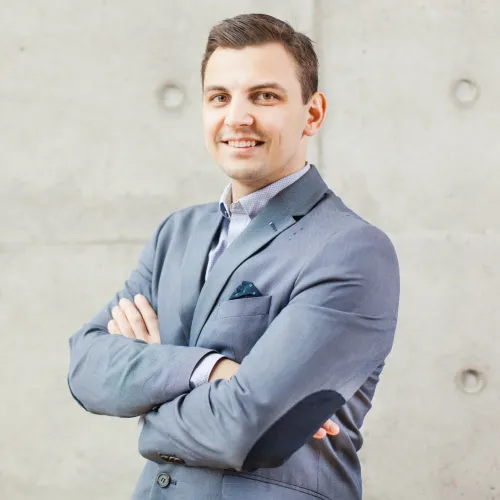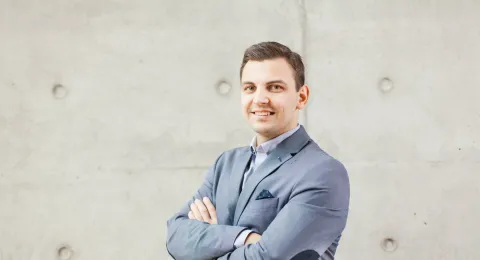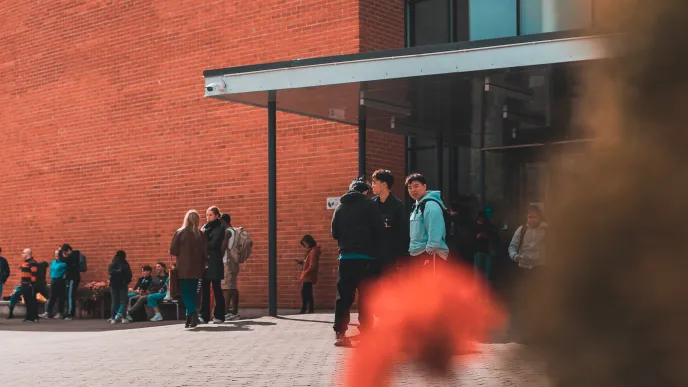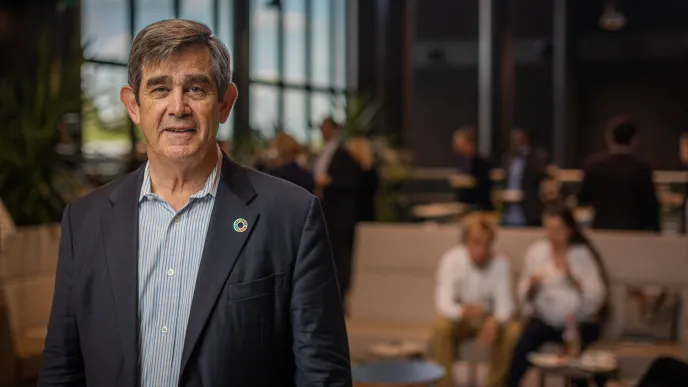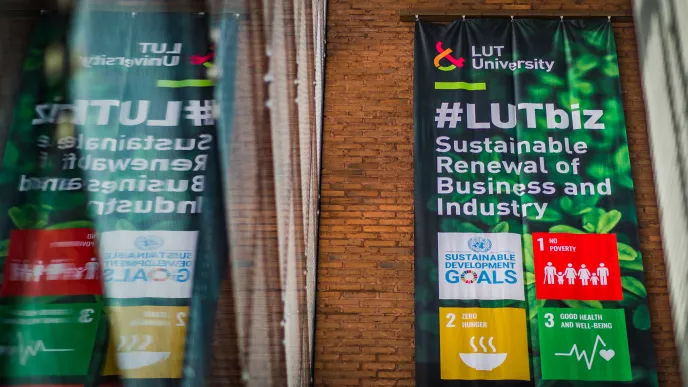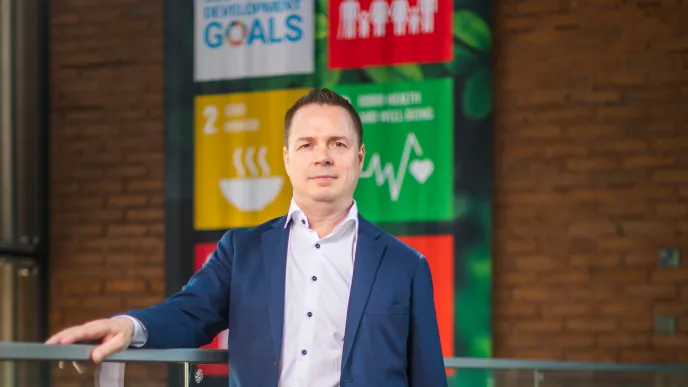Was the reward a total surprise?
When I received an invitation to the Enklaavi Annual Ball in late May, it was mentioned that I was nominated for an award. However, it was not clear what kind of award it was, and they were giving out several. While some colleagues mentioned that it might be the Lecturer of the Year award, I couldn’t believe it until they called out my name.
It is indeed a great feeling to be awarded by the students themselves and for me it is the ultimate recognition for my hard work and passion for teaching.
Why do you think the students chose you?
As Enklaavi’s Chairperson Ida Mattila announced my name at the ball, I was overcome by emotion. The grounds for the award were the following: "The lecturer is constantly coming up with innovative ways of teaching that encourage and motivate students to participate and give feedback, which is always taken into account in improving courses. The lecturer applies interactive learning, and students have described him as fun, relaxed, and truly interested in what he is teaching."
In my opinion, it is my own learning orientation that has helped me to organize a student-centered learning environment that is both intense and dynamic, allowing students to study what they are interested in. My role as an educator is not to postulate some universal truths, but rather to draw attention to and raise interest in important topics and show ways to study these topics utilizing relevant theoretical frameworks and analytical tools. Students take a more active approach to learning than just passively consuming information.
You are the head of the Master's Programme in International Business and Entrepreneurship (MIBE) – what does it give and take?
During these couple of years in the role of the MIBE programme director, I have understood that the programme is not a collection of courses. Instead it’s the people – faculty and students – who work jointly to learn from each other and to develop themselves personally and professionally. In this role, I have the privilege of working closely with hundreds of different amazing and talented people, and I take joy in witnessing how they progress. Hopefully I will make a positive impact on their lives.
How many courses do you teach? Where can students seek for your wisdom?
To be honest, the number of courses I am involved in is quite high, but in most cases, it is teamwork and co-teaching. It is hard to believe, but last year, I was involved in 10 different courses where my contribution varied from very minor, such as coordinating a course taught by guest lecturers, to having a primary role as a course instructor and course designer.
At the bachelor’s level, students mainly see me as a teacher on three courses – namely, International Business Essentials, Applied International Business, and Cross-Cultural Issues in International Business. At the master’s level, it is mainly Global Business Environment and Internationalization of the Firm and Global Marketing. I was also involved in two courses in Authentic Leadership, one for doctoral students and another one for doctoral supervisors. They were developed as part of an EU-funded project.
In general, what do you like the most about your job and what would you change?
What I like in this job is an endless number of opportunities for development both personally and the programme. On the other hand, there is not enough time to implement all of these development ideas. What I am trying to change is to find ways to involve students more in the development of the programme. For example, they could work on promoting the programme in social media to attract more international applicants or develop our own programme-specific alumni relationship strategy.
Tell us a little bit about your history – how did you end up at the LUT School of Business and Management (LBM)?
My first encounter with LBM was in 2009 when I got accepted to the double degree programme MITIM. Soon after graduation and one entrepreneurial project which did not take off in Lappeenranta, I returned to St. Petersburg, where I had a side business and a job offer. However, after a discussion with a career coach, I decided to apply to a doctoral programme in the Graduate School of Management of St. Petersburg State University (GSOM). I believe it was by far the best doctoral programme in management in Russia, and I had an opportunity to learn from world-class professors. I enjoyed a full-year exchange in the Aalto University School of Business and attended international conferences.
When I was attending the McGill International Entrepreneurship Conference in Pavia in 2012, without realizing it, I met my soon-to-be doctoral supervisor Olli Kuivalainen and our Dean Sami Saarenketo who were running a doctoral colloquium there. During that time, I was commuting between St. Petersburg, Helsinki and Lappeenranta, and it was not until 2014 that I finally settled in Lappeenranta, where I proceeded with my doctoral studies and further career at LUT.
What kind of research would you do if anything was possible?
It’s a dream come true when you are able to put together a course that you would like to study yourself. That’s what I did last year together with my colleague, Post-doctoral Researcher Agnes Murtola. We have designed a course entitled Introduction to Business and Culture in Finland. Somewhat self-servingly, I invited some of our best professors and guest lecturers from industry to talk about topics I was interested in myself.
The concept of the course proved relevant not only for me and other international students who wanted to know more about Finland, but surprisingly also for Finns. The first pilot version of the course got extremely good feedback, and now Agnes is taking care of it, whereas I am only in the background.
In your opinion, what is the highlight of your career so far?
The recognition as the Lecturer of the Year by Enklaavi is certainly the greatest highlight of my career so far. However, I feel that there is a lot room for me to grow in this profession, so I keep learning new things and experimenting with teaching. Research-wise, I am still working on something big, and hopefully you will hear more from me soon also in that area.
What would you do for living if you weren’t a researcher?
I think I would have changed professions many times and ended up in academia anyway. I love my job, and the recognition as Lecturer of the Year is proof that I am in the right place.
More information
